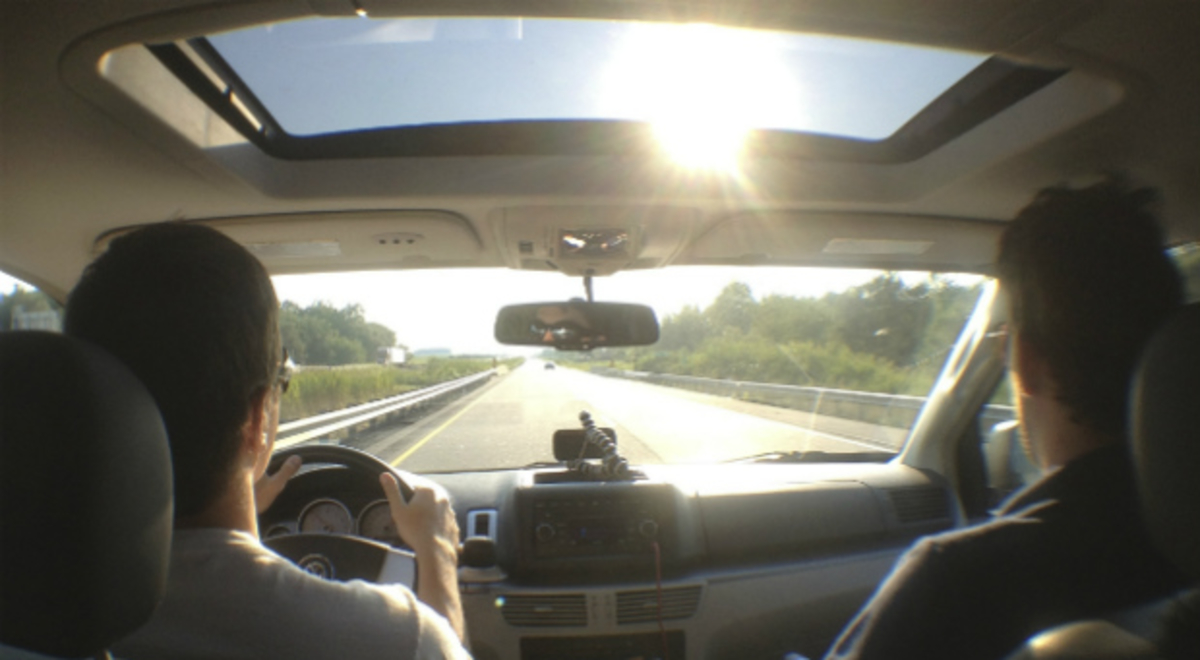Every year, many Canadians pack up their vehicles and head south to cross the border for shopping, travel, or work. We asked former Border Services Officer Luciano Nisi to share some of his tips to help make your border crossing experience a quick and stress-free process:
How to limit the chances of being sent in for a search
When you arrive at the booth and begin speaking to the border officer, you are being asked certain questions that are designed to determine if you should be referred for further processing and possible searches. Keep in mind the officer at the booth in on average of 2 minutes or less has to determine if you are a Canadian Citizen, determine if your declaration is truthful and accurate, and then decide if there is anything suspicious about your behaviour or vehicle that would require further search for drugs, alcohol, weapons, or other contraband. Here are a few things you can do to limit seeming to be suspicious when you arrive at the booth:
- Turn off your radio
- Remove your sunglasses
- Turn on inside dome lights or roll down rear tinted windows
- Have all your ID and receipts ready and know what you purchased
- Declare everything, even if you went over on your personal exemptions or purchased alcohol and were not gone greater than 48 hours. Allow the officer to use his or her discretion to decide if you will be sent in to pay the duty and or taxes on the purchases.
- Do not use or answer your cell phone and remove any headsets you may be using. If you follow these guidelines you will limit suspicion on yourself and your vehicle.
Buying alcohol when you are gone less than 48 hours
If you go down for a day trip, (perhaps to do some shopping) you may be tempted to purchase a bottle of wine or perhaps some beer. The customs regulations state that for any trips less than 48 hours any beer, wine or hard liquor is subject to duties and taxes. This simply means you may be charged on any purchases. It is a misconception to many travellers that think they cannot purchase alcohol while in the US. This is false; you may purchase as much as you want, you simply are not duty and taxes exempt. As a general rule, most officers do not send in travellers who purchase wine that is not over $12 for a 750ml bottle, or for a 12 pack of beer; however, you must be prepared to pay the duties and taxes when you arrive at the border. It is the officer’s discretion if they allow you to continue on or pay for the alcohol. So you may take a few trips and be allowed back without paying, then on another trip you may be sent in to pay. If you don’t have to pay on the purchase be thankful you were given a break that trip, just remember the next time you may be sent in. With regards to hard liquor such as vodka there is very little discretion given, this is more often due to the ratio of how the duties and taxes are calculated on hard liquor, it is higher than on beer and wine so officers are less likely to give you a break and let you continue without paying.
Bringing back fire wood from the USA
If you plan to travel to the US to go camping, and will be purchasing local firewood to use for your camp fires, you must ensure you do not bring back any of the firewood you purchased in the US to Canada. It is prohibited to bring back firewood or any wood not inspected. The reason is that this wood may contain larva or foreign bugs or mites that can potentially infect the ecological balance in Canada. Foreign bugs or larva that may be introduced may not have a natural predator and these bugs can overtake the natural habitat. Consider the devastating effects of the pine beetle that was accidentally imported from China. This bug has no natural predators in Canada and it has destroyed thousands of hectares of forests. If you are caught trying to import firewood you may be send back to the US to dispose of it, as well as subjected to fines and at the very least your travel back into Canada will be delayed. Don’t risk it and leave the firewood you purchase in the US at the camp site (the next camper will appreciate it).
Buying meat and dairy products in the USA
For every trip you have a daily limit of meat and dairy products. If you exceed these daily personal limits you may be subjected to heavy duties on the overage. For example each person is limited to $20 in dairy per person per day. That includes: milk, cheese, butter etc. If you exceed this $20 daily limit the duty rate is approximately 240%, and if you exceed $100 it becomes a commercial import and you would actually require permits to bring it into Canada. If you compare this 240% to hard alcohol such as vodka the duty rate on overage is only 140% duty, so the duty rate if you exceed the maximum dairy limit is substantial. The good news is that there are no age restrictions so if you travel down for a day and have family of 4 you are each entitled to $20 in dairy per person; $80 in this case.
What happens if you get caught for not declaring some clothing you purchased?
For a day trip to the USA you are not duties or taxes exempt on any purchases except certain groceries and gas. That means you must pay any duty or taxes on all goods you purchase. If you choose to purchase clothing for example and you either wear the clothing back or perhaps tuck it away out of sight and you are sent in for a search and the officers discover the clothing a few things can happen. Firstly there will be seizure of the goods, (the type of seizure will depend on if the goods were in plain view or concealed) each has a different level of fine attached. Secondly you will have to pay a fine associated with the seizure and any owing duties and taxes. Then your name and vehicle will be entered in the Customs database and your name will be flagged for 4-7 years depending on the level of seizure. And lastly if you have a Nexus card it will be revoked and you will no longer have the privileges of the trusted traveller program. All of this can happen for simply not declaring the clothing you brought back (and if the value was not very high the officer might have uses his or her discretion and not sent you in to pay). My recommendation is to declare everything you purchase and let the officer make the decision.
For more information and travel tips for crossing the border, check out Luciano's e-book Crossing the Line: How to Cross a Land Border Stress Free.


